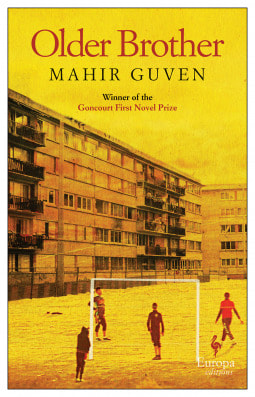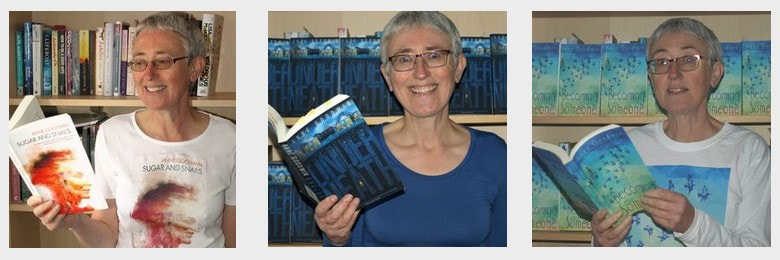Older Brother by Mahir Guven translated by Tina Kover
But the younger brother was restless, his work as an operating theatre nurse never enough. So, without confiding in his father or brother, he travels to Syria through a Muslim NGO to serve wounded civilians. There, for lack of better trained personnel, he’s soon heading the surgical team. But now he’s back and, following recent terrorist attacks, France is wary of Syrian returnees. Even those who’ve gone there for peaceful purposes, as well as anyone who supports them, have broken the law[2].
When the older brother first sees him emerging from the bus station, he can’t be sure he hasn’t imagined it. With his addiction to weed that led to a dishonourable discharge from the army with a diagnosis of schizophrenia, he doesn’t always hold the boundary between what is and isn’t real. Now he’s torn between family loyalty and his need, with a driving ban hanging over him (in conflict with his father, he works for an app-based car hire service), not to fall foul of the police.
A network of suspicion and deception gradually unfolds through two narrative strands, alternating between the older[3] and younger brother’s points of view. Unfortunately for me, as I was much more interested in the younger, the older one – whom I found self-absorbed and waffly – gets roughly twice as many words, and the core conflict isn’t apparent until midway. A twist[4] at the end annoyed me initially, but I came to change my mind, concluding that it made the story more real.
Mahir Guven’s debut novel is a prizewinner in France. The English translation is published by Europa editions who provided my advance proof copy.
[1] For another novel about siblings of the male gender, also the offspring of immigrants, see my review of Brother.
[2] This reminded me of my blog discussion about British teenager, Shemima Begum, who it was deprived of her citizenship after becoming an ‘ISIS bride’ following my review of the novel Godsend by John Wray.
[3] Mm, shouldn't it be elder?
[4] See also The Nickel Boys by Colson Whitehead.
Arturo’s Island by Elsa Morante translated by Ann Goldstein
After a lengthy description of the island and its taciturn inhabitants, the story proper begins when his father, who has returned home intermittently and always unannounced, marries a girl from the slums of Naples and brings her to the island. Although seemingly afraid of her husband, closer in age to her stepson than her husband, and inexperienced in keeping house, Nunziata is serious about her new role as Arturo’s stepmother and as Wilhelm’s wife. On the day they meet, Arturio and Nunziata have a companionable conversation, perhaps the longest he’s had with anyone in his life. Presumably disturbed by the feelings of vulnerability this engenders in him[1], he shuns her immediately afterwards, showing her the contempt his father expresses towards the entire female gender.
As is often the case with neglected children, Arturo idealises his father and is painfully jealous of the woman who shares his bedroom, even when he disdains her. But soon Wilhelm is off travelling again and Arturo’s jealousy finds a new focus when Nunziata gives birth to a son. Watching her mother his half-brother gives the boy a bitter taste of what he’s missed. Later, as the boy takes a lover, the players are once again rearranged, but the Oedipal triangle remains intact.
First published in Italian in 1957, and in English translation this year by Pushkin Press, the climax, when Arturo discovers where his father’s real affection lies, is underwhelming to modern tastes, while the overblown style stretches the story to twice the length it needs to be. But others have praised this coming-of-age story with themes of toxic masculinity, misogyny, Oedipal conflict and jealousy which seems to be for fans of Elena Ferrante (whom I haven’t read, and don’t plan to).
[1] As you'd expect, he's insecurely attached, probably avoidant. See my post on Teenagers trapped in houses of no hope.
























 RSS Feed
RSS Feed





















